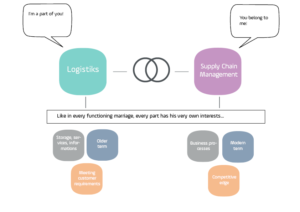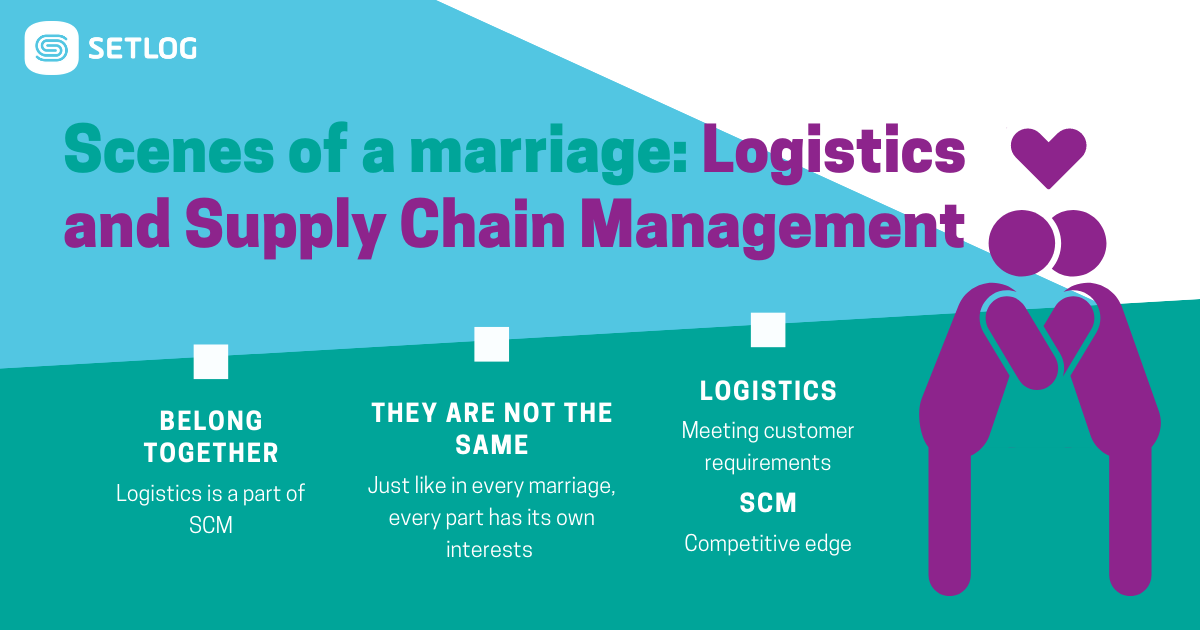The terms supply chain management and logistics are often used synonymously. Both terms have their own definitions one has to be aware of. The situation is similar to a married couple: Logistics and supply chain management belong together, but also pursue their own interests. Everyone has an own character, but complement each other.
Supply Chain Management
Supply Chain Management (SCM) is probably dominant part of this connection. It can be regarded as the logistics superior process and describes the cooperation between suppliers, customers and other partners. SCM combines important business processes in order to develop more efficient processes and create competitive advantages. It also includes efforts by companies to control the flow of raw materials and to ensure that finished products offer added value. Supply chain managers work across functions and companies to ensure that an end product not only reaches the end consumer, but also meets all requirements.
Logistics
Logistics is the submissive counterpart of SCM. As mentioned at the beginning, logistics is part of the larger, all-encompassing supply chain network. As part of the supply chain process, it ensures an efficient forward and backward flow, the storage of goods and services, and the planning, implementation and control of related information between point of origin and point of use to meet customer requirements. Inbound logistics includes the procurement of materials, their handling, storage and transportation. Outbound logistics is the collection, maintenance and distribution to the customer. Other activities, such as packing and fulfilling orders, warehousing, inventory management and maintaining a balance between supply and demand, also flow into logistics.

At a glance
The terms logistics and supply chain management can therefore not be used synonymously due to the differentiations described above. As in a marriage, each married couple consists of two individuals, each fulfilling their part, complementing each other in their processes and thus leading a functioning marriage!
